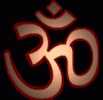Introdiction to Astrology & Astro Medicine

Astrology, the study of how events on earth correspond to the positions and movements of astronomical bodies, particularly the sun, moon, planets, and stars. Astrologers believe that the position of astronomical bodies at the exact moment of a person's birth and the subsequent movements of the bodies reflect that person's character and, therefore, destiny. For many years, scientists have rejected the principles of astrology. However, millions of people continue to believe in or practice it.
Astrologers create charts called horoscopes, which map the position of astronomical bodies at certain times, such as when a person is born. A horoscope is illustrated by a circle, called the ecliptic. The ecliptic is the plane on which the earth orbits around the sun in a year. It is divided into twelve sections, called the signs of the Zodiac, which include Aries, Taurus, Gemini, Cancer, Leo, Virgo, Libra, Scorpio, Sagittarius, Capricorn, Aquarius, and Pisces. Astrologers assign every planet (which in astrology includes the sun and moon) with a particular sign, depending on where that planet appears on the ecliptic at the time for which the horoscope is cast. Each planet represents basic human drives, and each sign represents a set of human characteristics. When astrologers designate a person as a certain sign-a Leo or a Pisces, for example-they are referring to the person's sun sign- that is, the sign that the sun occupied at the time of the person's birth.
The horoscope also is divided into twelve houses, which make up the 24-hour period during which the earth rotates once on its axis. Each house deals with certain areas of a person's life, such as marriage, health, work, travel, and death. Astrologers make predictions by interpreting the position of astronomical bodies within the signs and houses of the horoscope.
Astrology is an ancient practice that different civilizations seemed to develop independently. The Chaldeans, who lived in Babylonia (now Iraq), developed one of the original forms of astrology as early as 3000 bc. The Chinese were practicing astrology by 2000 bc. Other varieties formed in ancient India and among the Maya of Central America. These people may have observed that certain astronomical bodies, particularly the sun, affected the change of seasons and the success of crops. Based on such observations, they may have developed a broader system by which the movements of other bodies such as the planets affected or represented additional aspects of life.
By the 500s bc, astrology had spread to Greece, where such philosophers as Pythagoras and Plato incorporated it into their study of religion and astronomy. Astrology was widely practiced in Europe through the Middle Ages, despite the condemnation of such Christian leaders as Augustine, who became archbishop of Canterbury about ad 600. Many scholars viewed astrology and astronomy as complementary sciences until about the 1500s. At that time, the discoveries made by such astronomers as Nicolaus Copernicus and Galileo Galilei undermined some of the foundations of astrology. Since then, few scientists have accepted astrology as a science. Astro medicine is the treatment of 'dosha' or problems which we notice in the horoscope and the remedy to the astrological problems is in the astrology itself, therefore we have entitled the treatment of such astrological problems as Astro Medicine.
